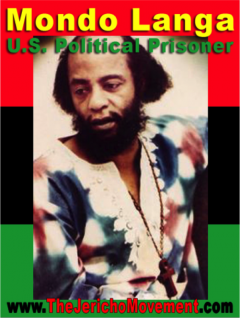For Rosalie Sorrels -Tell Me Utah Phillips- Have You Seen Starlight On The Rails?
Commentary
I have been on a something of a Utah Phillips/Rosalie Sorrels musical tear lately but I want to pay separate attention to one song, Phillips’ “Starlight On The Rails", that hits home on some many levels- the memories of bumming around the country in my youth, riding and living free (or trying to), my on and off love affair with trains as a mode of transportation, and, of course the political struggle to fix what ails this country. And as Utah acknowledges below in introducing the song (from the Utah Phillips Songbook version) we get a little Thomas Wolfe as a literary bonus. Utah and I, in the end, had very different appreciations of what it takes to do this political fixin' mentioned above but we can agree on the sentiments expressed in his commentary and song.
Utah, aside from his love of trains as a form of personal transportation when he was “on the bum”, also was a vocal advocate for their use as mass transportation. He originally argued this proposition at a time when the railroads were losing passengers in droves to the great automobile explosion. Utah wrote a song for one of his sons “Daddy, What’s A Train?” on the demise of this more people-friendly form of getting around. Since then there has been, due to the mercurial economics of oil and some conscious social and environmental policy planning, something of a resurgence of the train as a means of transportation.
Nevertheless the saga of the train in this writer’s imagination remains more of a boyhood memory than an actuality today. I can still see those historic old names: Union Pacific, Southern Pacific, B&O, and Boston & Maine. I can still hear the whistle blow as the train comes into the station. The conductor’s yell of “All, aboard” or the station’s name. Those rattling sounds of wheels hitting the metal of the rails. But, mainly, I think of the slower times, the time to look at the scenery as the train ambles along and to understand the how, if not the why, of the contours of the way America sprouted up as it out moved in all directions from its Eastern shores.
I noted in a review of a PBS American Experience documentary, “Riding The Rails” (see archives, “Starlight On The Rails, Indeed”, November 4, 2008) growing up in the 1950’s I had a somewhat tenuous connection with trains. My grandparents lived close to a commuter rail that before my teenage years went out of service, due to the decline of ridership as the goal of two (or three) car garages gripped the American imagination in an age when gas was cheap and plentiful. In my teens though, many a time I walked those then abandoned tracks to take the short route to the center of town. I can still picture that scene now trying to hit my stride on each tie. As an adult I have frequently ridden the rails, including a cross-country trip that actually converted me to the virtues of air travel on longer trips.
Of course, my ‘adventures’ riding the rails is quite different than that the one looked at in the American Experience documentary about a very, very common way for the youth of America to travel in the Depression-ridden 1930’s, the youth of my parents’ generation. My own experiences were usually merely as a paying passenger, although when down on my luck I rolled onto a couple of moving trains. An experience not for the faint-hearted, for sure. But this was mainly slumming. Their experiences were anything but. The only common thread between them and me was the desire expressed by many interviewees to not be HERE but to be THERE. I spent a whole youth running to THERE. But enough of this- let Utah tell his story about the realities, not the romance of the rails.
Guest Commentary
Starlight On The Rails- Utah Phillips
This comes from reading Thomas Wolfe. He had a very deep understanding of the music in language. Every now and then he wrote something that stuck in my ear and would practically demand to be made into a song.
I think that if you talk to railroad bums, or any kind of bum, you'll see that what affects them the most is homelessness, not necessarily rootlessness. Traveling is all right if you have a place to go from and a place to go to. It's when you don't have any place that it becomes more difficult. There's nothing you can count on in the world, except yourself. And if you're an old blown bum, you can't even do that very well. I guess this is a home song as much as anything else.
We walked along a road in Cumberland and stooped, because the sky hung down so low; and when we ran away from London, we went by little rivers in a land just big enough. And nowhere that we went was far: the earth and the sky were close and near. And the old hunger returned - the terrible and obscure hunger that haunts and hurts Americans, and makes us exiles at home and strangers wherever we go.
Oh, I will go up and down the country and back and forth across the country. I will go out West where the states are square. I will go to Boise and Helena, Albuquerque and the two Dakotas and all the unknown places. Say brother, have you heard the roar of the fast express? Have you seen starlight on the rails?
STARLIGHT ON THE RAILS
(Bruce Phillips)
I can hear the whistle blowing
High and lonesome as can be
Outside the rain is softly falling
Tonight its falling just for me
Looking back along the road I've traveled
The miles can tell a million tales
Each year is like some rolling freight train
And cold as starlight on the rails
I think about a wife and family
My home and all the things it means
The black smoke trailing out behind me
Is like a string of broken dreams
A man who lives out on the highway
Is like a clock that can't tell time
A man who spends his life just rambling
Is like a song without a rhyme
Daddy What's A Train
Most everybody who knows me knows that I'm a train nut. In Dayton, Ohio, when I was 12 years old during the Second World War, there was a railroad that went close by Greenmont Village. A bunch of the kids and I built a fort out of old railroad ties, half dug in the ground and half above the ground. We let a bum sleep in there one night - I think he was the first railroad bum I remember meeting - came back the next day and it had been burned down. He'd evidently set it on fire or started it accidentally.
Playing around in that fort we'd see the big steam engines run by. The engineers would wave, and the parlor shack back in the crummy - that's the brakeman who stays in the caboose - would wave, too. Put your ear down on the rail and you could hear the trains coming. We'd play games on the ties and swing ourselves on the rails. Also we'd pick up a lot of coal to take home. I understand that during the Depression a lot of families kept their homes warm by going out along the right of way and picking up coal that had fallen out of the coal tenders.
This song is written for my little boy Duncan. His grandfather, Raymond P. Jensen, was a railroad man for over 40 years on the Union Pacific, working as an inspector. There's a lot of railroading in Duncan's family, but he hasn't ridden trains very much.
(sung to chorus tune)
When I was just a boy living by the track
Us kids'd gather up the coal in a great big gunny sack,
And then we'd hear the warning sound as the train pulled into view
And the engineer would smile and wave as she went rolling through;
(spoken)
She blew so loud and clear
That we covered up our ears
And counted cars as high as we could go.
I can almost hear the steam
And the big old drivers scream
With a sound my little boy will never know.
I guess the times have changed and kids are different now;
Some don't even seem to know that milk comes from a cow.
My little boy can tell the names of all the baseball stars
And I remember how we memorized the names on railroad cars -
The Wabash and TP
Lackawanna and IC
Nickel Plate and the good old Santa Fe;
Names out of the past
And I know they're fading fast
Every time I hear my little boy say.
Well, we climbed into the car and drove down into town
Right up to the depot house but no one was around.
We searched the yard together for something I could show
But I knew there hadn't been a train for a dozen years or so.
All the things I did
When I was just a kid-
How far away the memories appear,
And it's plain enough to see
They mean a lot to me
'Cause my ambition was to be an engineer.
Copyright ©1973, 2000 Bruce Phillips


